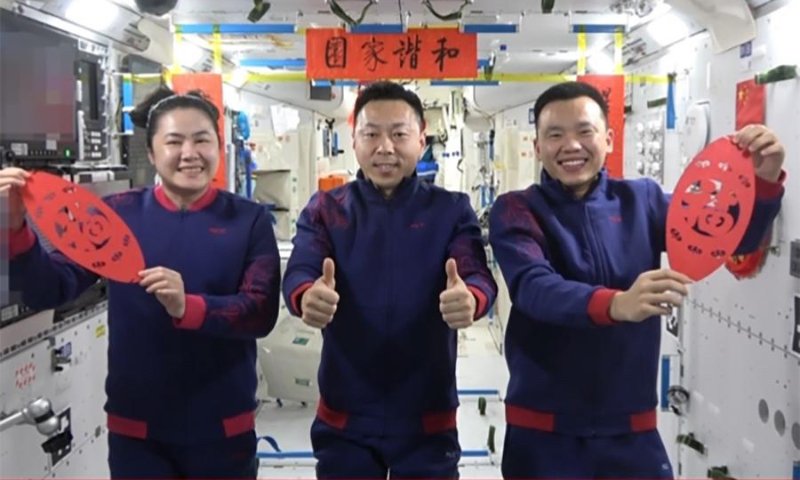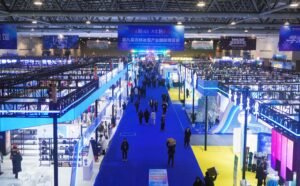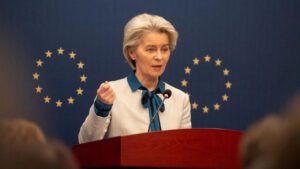As the Shenzhou-19 mission reaches its halfway mark, the three astronauts aboard the Tiangong space station, orbiting 400 kilometers above Earth, have shared insights into their daily routines and unique experiences during the Spring Festival.
Scientific Milestones and Spacewalks
Mission commander Cai Xuzhe, returning to the space station after nearly two years, described the experience as “both familiar and welcoming” in a video released on China’s CCTV on Thursday.
This marks Cai’s second stay aboard China’s space station but his first opportunity to celebrate the Spring Festival in orbit. Previously, he spent six months in space during the Shenzhou-14 mission in 2022.
Since their arrival on October 30, 2024, the Shenzhou-19 crew has carried out numerous critical tasks, including transitioning operations from the Shenzhou-18 team, conducting routine maintenance, and executing two spacewalks.
Extravehicular activities (EVAs), commonly known as spacewalks, are vital in station upkeep, scientific experiments, and testing new equipment. Cai emphasized the importance of their rigorous training, which includes emergency pressure drills and medical rescue exercises.
“These drills have significantly enhanced our ability to manage unforeseen challenges, allowing us to operate efficiently and safely,” he stated.
In collaboration with ground-based scientists, the astronauts have been advancing various experiments, such as research on human brain organoids and material exposure tests in extreme space conditions.
“Our research spans multiple fields, including space life sciences, microgravity physics, materials science, and aerospace medicine,” Cai noted.
Astronaut Song Lingdong, who participated in two spacewalks, shared his awe at the experience.
“I had imagined my first EVA many times, but nothing could prepare me for the breathtaking moment of opening the hatch and seeing Earth in its full glory,” he said. “Walking along the module walls felt like I was floating on clouds.”
While he was captivated by the beauty of space, Song also recognized the immense responsibility of their mission.
He added that the crew’s first nine-hour EVA demonstrated the reliability and safety of China’s next-generation spacesuits.
Responding to public curiosity, Song explained how astronauts maintain energy levels during lengthy spacewalks.
“We consume high-calorie meals before our EVAs and hydrate with functional drinks during tasks. The intense focus required means we don’t even notice hunger,” he said.
Balancing Work, Exercise, and Moments of Reflection
Despite their demanding schedule, the astronauts find moments of joy in their daily routines. “We move effortlessly in microgravity, interact with our AI assistant, cultivate plants, and even raise fruit flies,” Wang said.
Wang enjoys documenting her experiences in space diaries, but her favorite activity is gazing out of the station’s porthole at Earth’s vast landscapes, from endless oceans to towering mountains.
“Looking at my homeland from space fills me with a deep sense of pride and longing,” she expressed.
To counteract the effects of prolonged weightlessness, the astronauts follow a strict exercise routine using specialized equipment such as treadmills, stationary bikes, and resistance devices.
“These workouts are essential to maintaining bone density, muscle strength, and cardiovascular health. Combined with balanced meals, we remain strong and energized,” Wang explained.
The crew also values time spent together, sharing meals, humor, and moments of camaraderie.
As they marked three months in orbit during the Spring Festival, Wang shared a heartfelt message: “May our nation continue to flourish, and may we reach even greater heights together, both in space and on Earth.”
This year marks the third Spring Festival celebrated since the full completion of China’s space station. Crew members from Shenzhou-15, Shenzhou-17, and Shenzhou-19 have all welcomed the New Year in space.
Life aboard the station is not solely about work. During the Spring Festival, the crew rested, communicated with their families, and captured breathtaking images of Earth and space.
“We sent New Year’s greetings from orbit and recorded videos to commemorate these special moments,” said Song, who plans to document his experiences for his children.
Wang Haoze, China’s first female space engineer aboard the station, expressed her deep pride in China’s space achievements, marveling at the complexity and precision of their “home in space.”
Source: https://www.globaltimes.cn/page/202502/1327731.shtml
Abroad Africa AI Beijing Belt & Road BLCU BRICS China chinese CPC CSC Culture Economy education EU Guizhou Kültür Langauge movie Multipolarity Russia scholarship science Shanghai Sino Sino Turkish Sino Turkish Sino Turkish Sino Turkish Sino Turkish Studies Sino Turkish Studies Sino Turkish Studies Sino Turkish Studies space Syria Taiwan Tariff trump Turkiye Türkiye University USA Xinjiang ZJUT Çin





